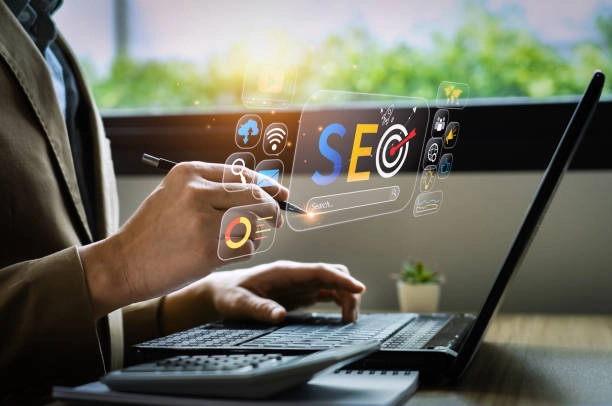Mastering on page SEO services is paramount for businesses and digital marketing seeking to enhance their online visibility and attract organic traffic. On-page SEO involves optimizing various elements of a website to improve its search engine rankings and provide a flawless user experience. In this guide, we’ll explore the fundamental principles and best practices of SEO services to help you optimize your website effectively. Explore the world of digital marketing with Mazor Digital.
Guide In Optimizing Websites
Understanding On-Page SEO
On-page SEO refers to the optimization of individual web pages to rank higher and earn more relevant traffic in search engines. Unlike off-page SEO, which focuses on external factors such as backlinks and social signals, on-page SEO revolves around optimizing elements within the website itself. By optimizing on-page elements, businesses can improve their chances of ranking prominently in search engine results pages (SERPs) and driving targeted traffic to their websites.
Key Elements of On-Page SEO
Keyword Research
Keyword research forms the foundation of on-page SEO. Identify relevant keywords and phrases that your target audience is likely to use when searching for your products or services. Use keyword research tools like Google Keyword Planner or SEMrush to discover high-volume, low-competition keywords that you can incorporate strategically into your website content.
Meta Tags Optimization
Meta tags, including meta titles and meta descriptions, play a crucial role in on-page SEO. Optimize meta titles and descriptions to accurately describe the content of each web page while incorporating target keywords naturally. Compelling meta tags can improve click-through rates (CTRs) in search results, driving more traffic to your website.
Header Tags (H1, H2, H3)
Header tags provide structure and hierarchy to your content, making it easier for both users and search engines to understand. Use H1 tags for main headings and H2, H3 tags for subheadings, incorporating relevant keywords where appropriate. Properly formatted header tags not only improve readability but also signal the relevance of your content to search engines.
URL Optimization
Optimize URLs to make them concise, descriptive, and keyword-rich. Include target keywords in the URL structure to provide search engines with context about the content of the page. Avoid using complex or dynamic URLs with random strings of characters, as they can be difficult for users and search engines to interpret.
Content Optimization
High-quality, relevant content is essential for on page SEO services. Create informative, engaging content that addresses the needs and interests of your target audience. Incorporate target keywords naturally throughout the content, but avoid keyword stuffing, which can harm readability and user experience. Additionally, use descriptive anchor text for internal links to help search engines understand the context of linked pages.
Image Optimization
Images can enhance the visual appeal of your website and improve user engagement, but they also provide an opportunity for optimization. Optimize image filenames, alt tags, and captions with relevant keywords to improve accessibility and provide additional context to search engines. Compress images to reduce file size and improve page load speed, which is a crucial ranking factor for both desktop and mobile searches.
Mobile-Friendliness
With the increasing prevalence of mobile devices, ensuring that your website is mobile-friendly is essential for on-page SEO. Use responsive design techniques to create a flawless user experience across all devices and screen sizes. Google prioritizes mobile-friendly websites in its search rankings, so optimizing for mobile is crucial for maintaining visibility and rankings in SERPs.
Page Speed Optimization
Page speed is a critical factor in both user experience and search engine rankings. Optimize page load times by minimizing server response times, leveraging browser caching, and reducing the size of CSS, JavaScript, and HTML files. Use tools like Google PageSpeed Insights or GTmetrix to identify and address performance issues that could be impacting your website’s speed.
Implementing On Page SEO Best Practices
Regularly Audit and Update Content
Conduct regular audits of your website’s content to identify outdated or underperforming pages. Update and optimize content to ensure it remains relevant, informative, and aligned with current SEO best practices. Refreshing existing content can help maintain its visibility and relevance in search results.
Monitor Performance Metrics
Track key performance metrics such as organic traffic, keyword rankings, and user engagement to gauge the effectiveness of your on page SEO services. Use analytics tools like Google Analytics and Google Search Console to monitor performance trends, identify areas for improvement, and measure the impact of optimizations over time.
Stay Updated on Algorithm Changes
The field of SEO is constantly evolving, with search engines frequently updating their algorithms and ranking factors. Stay informed about algorithm changes and industry trends to adapt your on page SEO services strategies accordingly. Subscribe to reputable SEO blogs, attend industry conferences, and participate in online forums to stay abreast of the latest developments in the field.
Seek Professional Assistance if Needed
While mastering on page SEO services is achievable with dedication and effort, it can be complex and time-consuming. If you lack the expertise or resources to optimize your website effectively, consider seeking assistance from a reputable digital marketing agency like Mazor Digital. A team of experienced professionals can provide customized solutions to optimize your website and drive sustainable growth through on-page SEO.
Mastering on page SEO services is crucial for optimizing websites and improving their visibility, relevance, and performance in search engine results. By understanding the key elements of on-page SEO, implementing best practices, and staying updated on industry trends, businesses can enhance their online presence, attract targeted traffic, and achieve their growth objectives. At Mazor Digital, we’re passionate about helping businesses unlock the full potential of their digital presence through innovative on page SEO services strategies. Contact us today to learn how we can help you optimize your website for success in the competitive online landscape. Inspired? Contact us now to learn more about Digital marketing.
Frequently Asked Questions
1. What is on-page SEO?
On-page SEO involves optimizing individual web pages to improve their search engine rankings and attract relevant traffic. It focuses on optimizing elements within the website itself to enhance visibility and user experience.
2. Why is on-page SEO important?
On-page SEO is crucial because it helps search engines understand the content and relevance of web pages. By optimizing on-page elements such as meta tags, headers, and content, businesses can improve their chances of ranking higher in search engine results pages (SERPs) and attracting organic traffic.
3. How do I conduct keyword research for on-page SEO?
Keyword research is essential for on page SEO services. Use tools like Google Keyword Planner or SEMrush to identify relevant keywords and phrases that your target audience is likely to use. Look for high-volume, low-competition keywords that you can strategically incorporate into your website content.
4. What are meta tags, and why are they important for on-page SEO?
Meta tags, including meta titles and meta descriptions, provide information about the content of a web page to search engines and users. Optimizing meta tags with relevant keywords can improve click-through rates (CTRs) in search results and drive more traffic to your website, making them crucial for on-page SEO.
5. How can I optimize images for on-page SEO?
Image optimization is an important aspect of on-page SEO. Optimize image filenames, alt tags, and captions with relevant keywords to improve accessibility and provide context to search engines. Additionally, compress images to reduce file size and improve page load speed, which is a crucial ranking factor for both desktop and mobile searches.
6. Why is mobile-friendliness important for on-page SEO?
With the increasing prevalence of mobile devices, ensuring that your website is mobile-friendly is essential for on-page SEO. Google prioritizes mobile-friendly websites in its search rankings, so optimizing for mobile is crucial for maintaining visibility and rankings in SERPs.
7. How can I monitor the performance of my on-page SEO efforts?
Track key performance metrics such as organic traffic, keyword rankings, and user engagement to gauge the effectiveness of your on page SEO services. Use analytics tools like Google Analytics and Google Search Console to monitor performance trends, identify areas for improvement, and measure the impact of optimizations over time.



